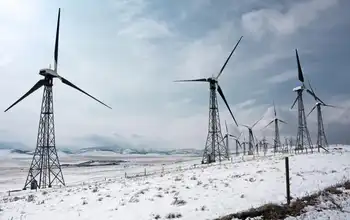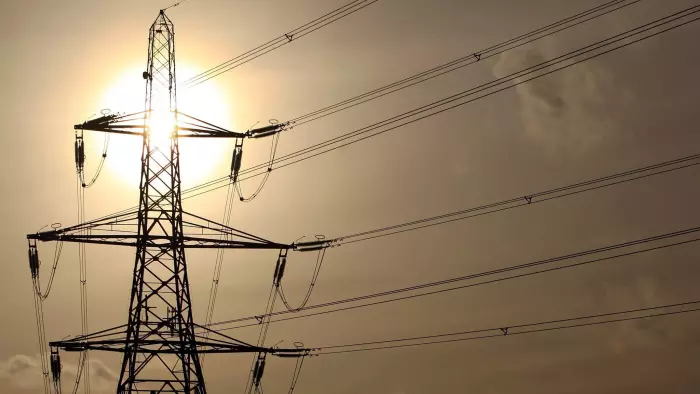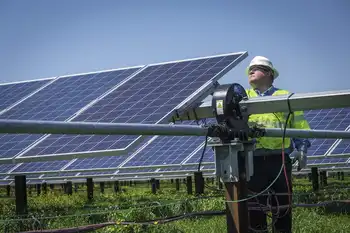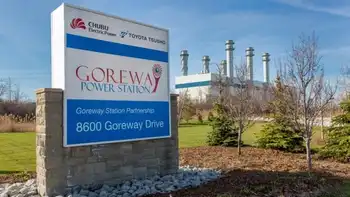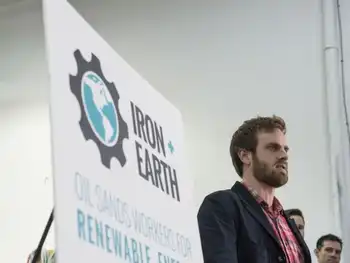Nation auctions carbon credits to curb global warming
By Associated Press
High Voltage Maintenance Training Online
Our customized live online or in‑person group training can be delivered to your staff at your location.

- Live Online
- 12 hours Instructor-led
- Group Training Available
"It is time really to turn the tide on global warming," said New York Gov. David Paterson, who opened the auction by ringing the ceremonial bell at the New York Mercantile Exchange. "And we hope that we've done this today."
The program puts a price on carbon dioxide pollution, giving power plants a financial incentive to cut emissions.
Auction proceeds will go toward energy conservation and renewable energy programs in each of the 10 participating states: New York, Connecticut, Delaware, Maine, Maryland, Massachusetts, New Hampshire, New Jersey, Rhode Island and Vermont.
The program aims to hold carbon dioxide emissions steady through 2014 and then gradually reduce them; it is widely viewed as a model for future programs nationally and around the globe.
"It's historic," said Lance Pierce, climate program director of the Union of Concerned Scientists. "The carbon markets have arrived in the United States. And carbon markets, if designed correctly, hold the promise for development of cleaner energy... and reductions in global warming pollution that benefit consumers, businesses and the environment, as well."
The Northeast effort, called the Regional Greenhouse Gas Initiative, limits the total amount of carbon that power plants in the 10 states can pump out of their smokestacks at the current level — 188 million tons.
Electric power generators must pay for allowances covering the amount of carbon they emit, and the initiative will provide a market-based auction and trading system in which the generators can buy, sell and trade the emissions allowances.
The initiative covers more than 200 fossil fuel power plants, requiring that the owners of those plants pay for the carbon dioxide they emit.
It will gradually reduce carbon emissions by reducing the emissions limit in a series of steps, until it is 10 percent below the current level a decade from now. The companies that don't reduce emissions can buy allowances from companies that have, thereby creating a financial incentive to reduce pollution because the more environmentally friendly plants won't have to buy as many credits and because they can sell any they don't need.
Dale Bryk, senior attorney at the Natural Resources Defense Council, said, "This new energy plan is straightforward, highly cost-effective and creates a clean energy pathway for the rest of the country to follow. It is the shape of things to come."
Carbon dioxide trading already exists in Europe. Some carbon dioxide allowances also are being traded in the United States on a voluntary basis through the Chicago Climate Exchange. But the Northeast effort is the nation's first mandatory effort to limit carbon dioxide.
The initiative took five years to bear fruit. George Pataki, New York's governor at that time, brought together nine other governors five years ago to develop a regional strategy to limit carbon dioxide emissions from power plants.
Other regional greenhouse gas coalitions, such as the Western Climate Initiative and the Midwestern Greenhouse Gas Accord, are in earlier stages of development.
New Jersey Gov. Jon Corzine, who joined Paterson at a news conference at the Mercantile Exchange, noted that both John McCain and Barack Obama support cap-and-trade programs to reduce greenhouse gas emissions. Corzine said "there is building momentum" to enact federal legislation.
In response to critics who have argued that the limit is too high, Corzine said, "I think we need to make sure that the mechanics of the auction process and the system work." He said the limit could be lowered at subsequent auctions if the initiative's member states determine it's too high to have the intended effect.
The auction was run by World Energy, an operator of online green exchanges.





